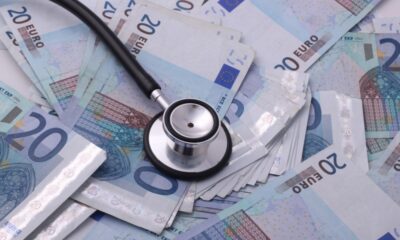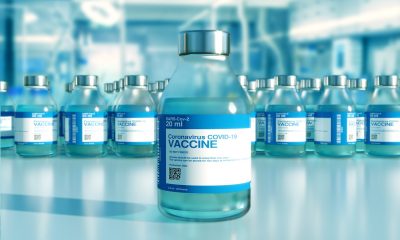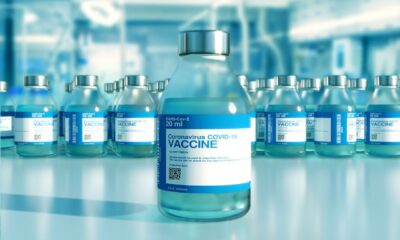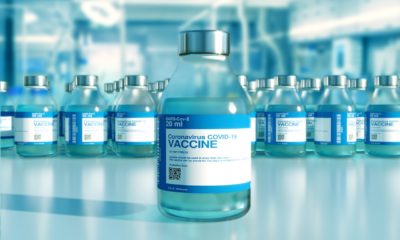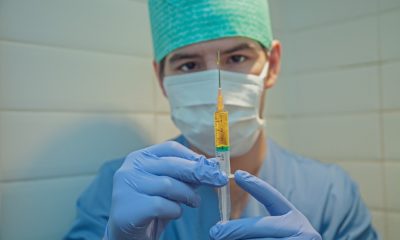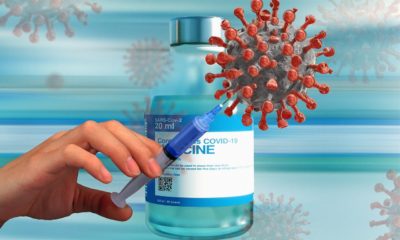Biotech
How close are pharma companies to develop a vaccine against Sars-CoV-2
As the new coronavirus spreads in the world, a number of biotech and pharmaceutical companies are working hard to meet challenges and develop vaccines. There are at least 9 companies and 16 projects around the world that are currently stepping up such as Curevac (Germany), Janssen (owned by Johnson & Johnson, USA), Sanofi Pasteur (France), Moderna + NIAID (USA), to name just a few.
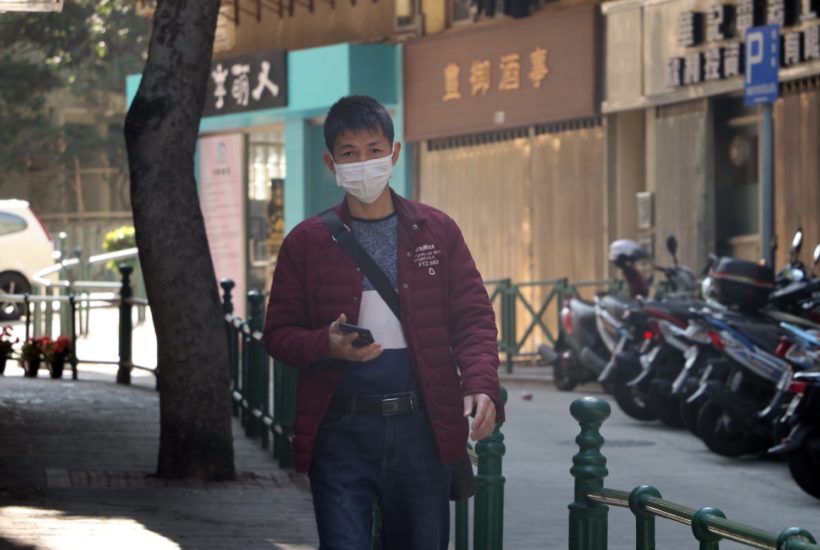
Never before have pharmaceutical companies and research institutions reacted so quickly to a new pathogen as they did to the new coronavirus Sars-CoV-2, which causes the disease Covid-19. They develop vaccines, test existing drugs for their suitability, develop new drugs and support the Chinese health system. They also often cooperate with each other.
All the latest biotechnology news about a possible Covid-19 vaccine development with the Born2Invest mobile app. Be the first to find out the most important financial news, successful crowdfunding campaigns, news about Africa, and much more.
Ongoing vaccine projects for the Covid-19 pandemic
There are currently at least 16 projects for vaccines against Sars-CoV-2 – nine by companies, seven by research institutes. However, not all Chinese projects are known. The active companies are Curevac (Germany), Janssen (owned by Johnson & Johnson, USA), Sanofi Pasteur (France), Moderna + NIAID (USA), Inovio + Wistar Institute (USA), Clover Biopharmaceuticals (China), Novavax (USA), Tonix Pharmaceuticals (USA), Altimmune (USA).
GSK and Dynavax also contribute with their adjuvants (potentiators for vaccines) to projects of other companies and research groups. Three of the companies – namely Curevac, Moderna and Inovio – are financially supported by CEPI, the Coalition for Epidemic Preparedness Innovations.
Stages of vaccine development
The development of each new vaccine is – in simple terms – a multi-stage process: analysis of the virus, the design of the active ingredient, testing on animals, which is followed by testing on volunteers, and finally the approval procedure in the EU (correspondingly in the U.S., China, Japan, etc.).
Mass production of the approved vaccine
Thanks to good preparation of companies and research institutions for the epidemic, experience with the related Sars and Mers viruses and priority handling of all applications by the drug authorities, it will probably be possible to go through the stages much faster than ever before. Even under these circumstances, however, official bodies assume that an approved vaccine will be available in 12 to 18 months at the earliest.
So far, no vaccine has been tested with volunteers. It is to be hoped that as many companies and research institutes as possible will reach their goal quickly, as this increases the chances that sufficient vaccine units can be produced for a global vaccination campaign using existing production capacities.
Existing drugs are also tested in clinical trials with Covid-19 patients
Faster than vaccines, drugs may be available to treat infected people. That is because many drugs that have already been approved or, at least extensively tested against other diseases, are suitable for this purpose. Their actual suitability is currently being tested in clinical trials with Covid-19 patients. These are mainly drugs of the following types: Viral statics originally developed against HIV, Ebola, Hepatitis C, Influenza, Sars or Mers (two diseases caused by other coronaviruses). They are designed to block the reproduction of the viruses or prevent them from entering lung cells. An old anti-malarial drug is also being tested, which effectiveness against viruses was only recently discovered.
Another type of medicines tested are immunomodulators, developed against rheumatoid arthritis or inflammatory bowel disease. They are designed to limit the body’s defensive reactions so that they do not cause more damage than the viruses themselves.
Medicines for lung patients, which have been developed e.g. for idiopathic pulmonary fibrosis, are also tested. They are intended to prevent the patient’s lungs from no longer being able to supply the blood with enough oxygen.
The companies make their drugs available. The majority of the trials are largely carried out in Chinese hospitals because most patients are treated there. To date, there have been a number of positive individual case reports, but no drug has systematically confirmed efficacy and tolerability in Covid-19 patients.
New drugs against the Covid-19
Some companies and research institutes also want to develop new drugs against Covid-19. The focus is on the blood serum of patients who have recovered from a Covid-19 infection (the so-called “convalescent serum”). It contains antibodies that the patient’s immune system has produced in response to the infection. Researchers hope that some of these antibodies will be able to render Sars-CoV-2 unable to replicate in the body.
One company plans to generate such antibodies in large quantities from plasma donations, from former Covid-19 patients, and process them into a drug. Several research institutions are planning to “copy” the most suitable antibodies from the serum using biotechnological means and produce them in cell cultures. In both cases, Covid-19 patients should subsequently be cured with antibody infusions.
Support for the Chinese health system
In addition, numerous research-based pharmaceutical companies support the Chinese healthcare system with monetary and material donations totaling $7.8 million (€7 million). In-kind donations include protective clothing, medicines, and diagnostic equipment. The money goes in particular to the Chinese Red Cross.
__
(Featured image by Macau Photo Agency via Unsplash)
DISCLAIMER: This article was written by a third party contributor and does not reflect the opinion of Born2Invest, its management, staff or its associates. Please review our disclaimer for more information.
This article may include forward-looking statements. These forward-looking statements generally are identified by the words “believe,” “project,” “estimate,” “become,” “plan,” “will,” and similar expressions. These forward-looking statements involve known and unknown risks as well as uncertainties, including those discussed in the following cautionary statements and elsewhere in this article and on this site. Although the Company may believe that its expectations are based on reasonable assumptions, the actual results that the Company may achieve may differ materially from any forward-looking statements, which reflect the opinions of the management of the Company only as of the date hereof. Additionally, please make sure to read these important disclosures.
First published in prozesstechnik, a third-party contributor translated and adapted the article from the original. In case of discrepancy, the original will prevail.
Although we made reasonable efforts to provide accurate translations, some parts may be incorrect. Born2Invest assumes no responsibility for errors, omissions or ambiguities in the translations provided on this website. Any person or entity relying on translated content does so at their own risk. Born2Invest is not responsible for losses caused by such reliance on the accuracy or reliability of translated information. If you wish to report an error or inaccuracy in the translation, we encourage you to contact us.

-

 Africa6 days ago
Africa6 days agoTunisia Holds Interest Rate as Inflation Eases, Debate Grows
-

 Crypto2 weeks ago
Crypto2 weeks agoEthereum’s Growing Capacity Puts Pressure on Layer 2 Platforms
-

 Fintech1 day ago
Fintech1 day agoRuvo Raises $4.6M to Power Crypto-Pix Remittances Between Brazil and the U.S.
-

 Cannabis1 week ago
Cannabis1 week agoCannabis and the Aging Brain: New Research Challenges Old Assumptions
